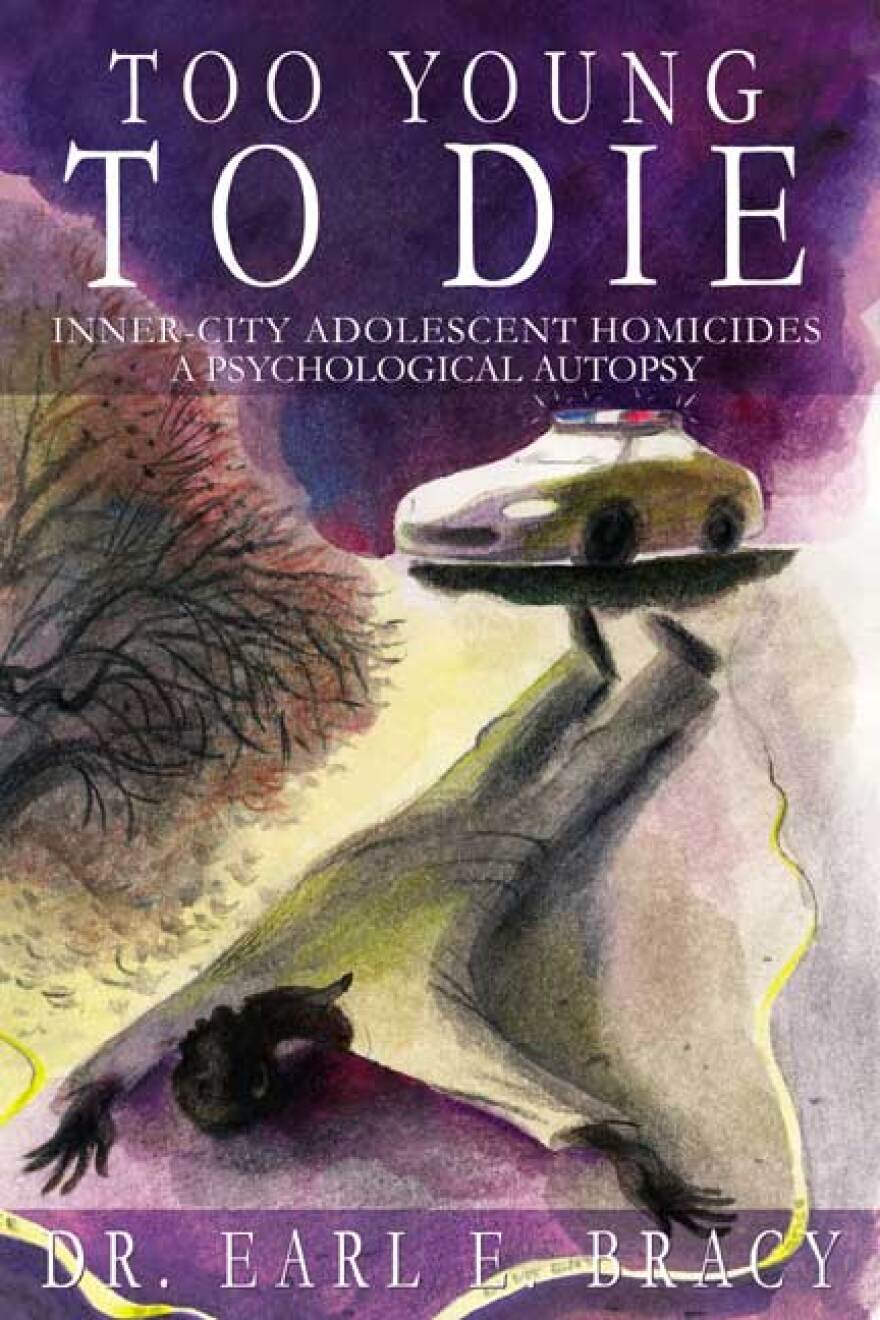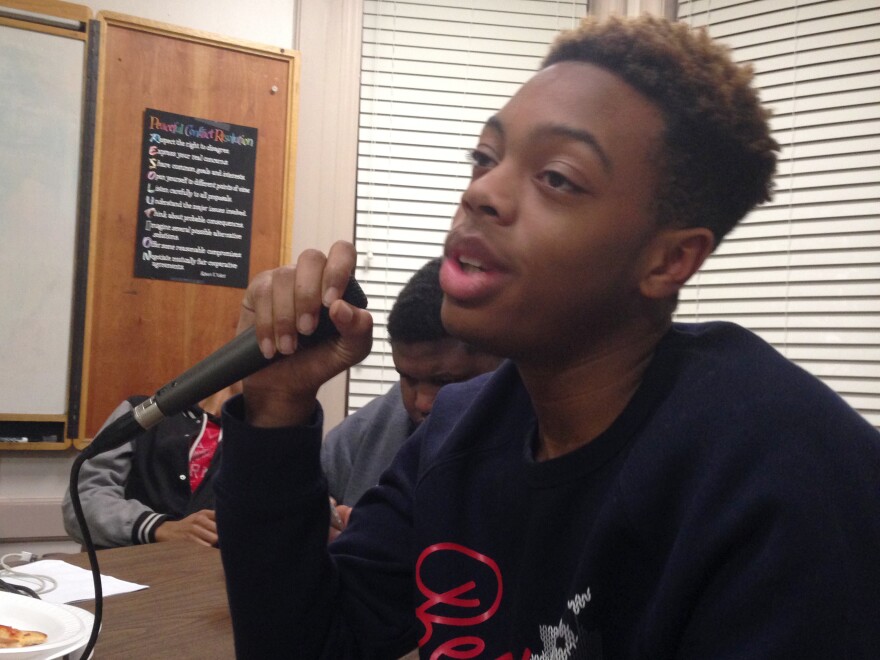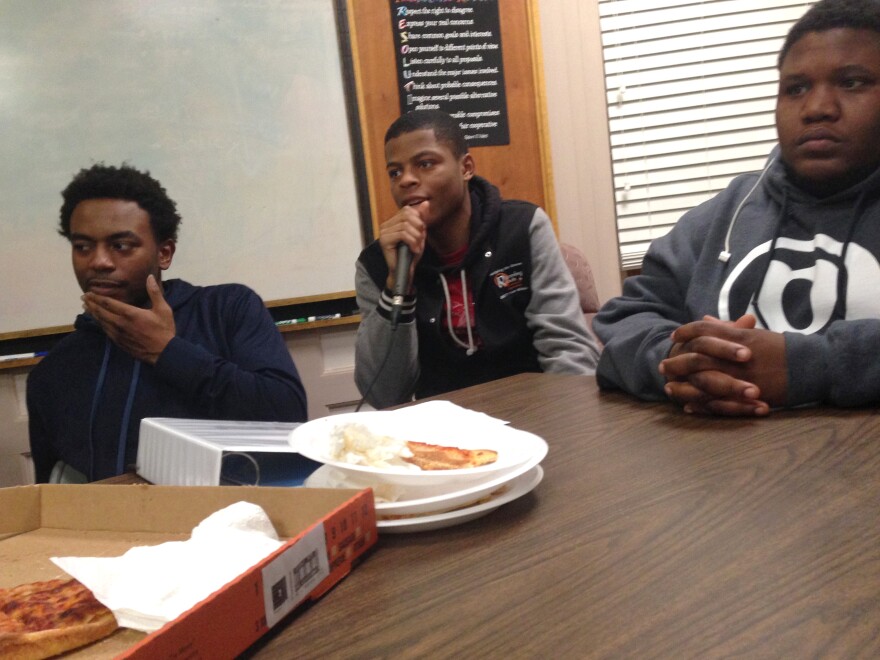Precious Lives: Before the Gunshots is a project designed to explore the root causes of the gun violence that has changed the face of Milwaukee over the last several years. Its an expansion of the Precious Lives series that focuses on stories about those impacted by gun violence and solutions to the problem.

Before the Gunshots sees the lives of the shooters in many of these incidents as being more complex that the shallow depictions often presented. Through this examination of their lives and their formative years, we hope to reveal the reasons why so many young people have gone in this perilous direction.
While we all feel the horror, fear and sense of loss many victims and their families have endured, there is a tremendous amount of understanding about this cycle of violence to be gained by looking at the perpetrators, whose lives can be as trauma-filled as those who they have victimized.
This is our first story.

Producer Eric Von met with seven young men, ranging in age from 15 - 23, and their mentors at Running Rebels, a place where programs address the many issues young men in this community face.
The young men, Rapheal Bell, Titus Howard, Gregory Evans, Eric Newson, Kajuan Shelton, Jarquis Britton and Desmond Parker, and Running Rebel mentors discussed gun violence, its causes and affects, the people who openly wield guns and the reasons why.
Here are some thoughts the group shared in the conversation:
"Nine out of ten, people who get in problems with guns is because they have one – no doubt – if they didn’t have that gun how would they have reacted to that situation? Most of the time it would’ve ended differently and probably come out a better outcome."
"It’s the environment. All these young men are not afraid of guns or gunshots because they live in it everyday. It’s like being in a war zone, you know what I’m saying? A soldier, and if you’re just used to shooting and just hearing gunshots and shots and things blowing up around you, you become immune to it."
"If we heard gunshots, nobody would be falling on the floor, ducking. It would be like, oh, they’re shooting again. It’s just like the norm and now in the neighborhoods we live in it. It’s the normal lifestyle of anybody in the inner city."

Dr. Earl Bracyis a clinical psychologist who has worked with Milwaukee's youth for many years. He is also the author of two books. His first, Too Young to Die: Inner City Adolescent Homicides - A Psychological Autopsy, is a comprehensive study that examines the psychological variables that contribute to black on black male adolescent homicides.
Von played some of the Running Rebels' conversation for Dr. Bracy to get his take.
"This is what happens to a lot of the kids," he says. "They kind of see this around them everyday, so there’s a certain amount of developing, I guess, like a hard shell where you become really hard, you know. This is the way we live. It’s abnormal behavior that’s become normalized."
None of the boys he met with have a PhD, they've learned their lessons on the streets - where they have seen a lot more than most teens their ages as well as many adults:
"I know of a few people that were shot. It was all over something crazy. You got into it with one of your guys over a female and you shot him."
"They got into an altercation and he ends up shooting dude outside the car five times and he died right on the scene. That was a little crazy for me seeing it firsthand."
"Just seeing it firsthand and how it went through my mind…it was like, how somebody could be that cold and just kill somebody…and just leave them sitting there like that. Like no heart. Nothing. It’s crazy."
The signals that a young person may be troubled aren't always easy to see, not even for trained professionals, Bracy says.

"It’s confusing because sometimes they also lead a double life, you know," he says. "I’ve seen kids that go to school, sometimes they do very well in school, sometimes average, and we as a team working with them, we think things are going well, but then we hear that they were in a stolen car."
He adds, "These kids act out, specifically because they’re trying to get some attention, first of all. And they don’t care if it’s bad attention or good attention as long as they get some attention."
But the problems run much deeper than bored kids vying for attention, and Bracy agrees. Serious issues with self esteem are present in many of the young people who commit violent crimes.
"The kids in our generation feel they got a point to prove to the next man…that they’re harder than them, that they’re not soft."
"If you got a gun in your hand you already feel like you’re empowered."
"You got a gun, you gonna shoot somebody, basically."
"Now it’s all, he pulled the trigger first…he’s the man. It’s stupid."
Bracy's observations of youth over the years have yielded many of the same conclusions that the young people have come to just living in their neighborhoods, witnessing what happens there.
"So if you have a gun, that shows power, dominance, control, you know. I’m in charge."
"They always tell me that guns are easy to come by. One kid I worked with said, 'it's like going to the store and buying candy.'" - Dr. Earl Bracy
So, where do these guns come from that enable these young people to act on their anger and fears? Bracy says guns are easy to come by.
"One kid I worked with said 'it’s like going to the store and buying candy.' They won’t share with you, always, where they’re getting them from but they can get them readily," he says.
Victor Barnett, founder of the Running Rebels, concurs. He says impulse has a lot to do with the equation, as well. "That emotion and anger is what... takes a person from being ok and going out here and being incarcerated because they lost their temper; they didn’t pause; they didn’t take that time to catch themselves and there were a lot of times when there ain't nobody around to tell them it ain't worth it."
Strong parenting would eliminate many of the problems we see in this community, according to Bracy. "If they had a strong mother and father we wouldn’t see a lot of the things we see," he says.

Bracy has counseled hundreds of men and boys, and he says and that work has revealed some chilling realities. "There’s a sense of hopelessness, you know, they don’t see themselves as being 25, 30, 40 years old, but the other part of it is... they’re afraid but not afraid. It’s like if it happen to me it happens. It’s nothing I can do about it," he says.
But the young men at this table, maybe because of their involvement with the Running Rebels, see a way out. They have made choices that they hope have changed the trajectory of their lives:
"It wasn’t really a decision, it was an ultimatum – either you’re going to be on this side of the field or you’re going to be on that. And I made up my mind that I wanted to see myself grow old."
Bracy offered some suggestions for men and boys who face some of life’s most difficult challenges: He says that good parenting is the most important component and those good parents must show interest in their child.
Sounds simple, but he says, that’s often left out of the equation. He adds, nurturing is important and so is being consistent in your interaction with children. Bracy says parents must accent the strengths of their children to help them realize their potential.
Most of all, he says, parents must know that education is the greatest and most rewarding investment a parent can make for their children.

Precious Lives: Before the Gunshots is produced by Eric Von and brought to you by WUWM in collaboration with 371 Productions, as part of Finding America, a national initiative produced by AIR, with financial support from the Corporation for Public Broadcasting.






